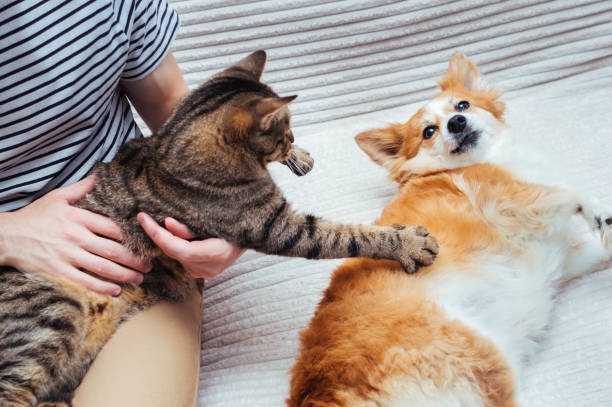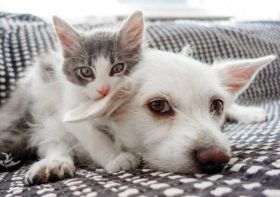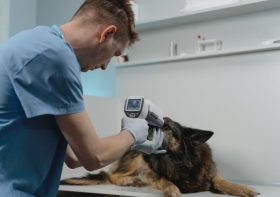When Is the Right Time to Visit an Emergency Pet Hospital?

As pet owners, we strive to keep our furry family members safe and healthy. However, there are times when our pets may require immediate medical attention. Understanding when it’s crucial to visit an emergency pet hospital can make a significant difference in their health and well-being. In this article, we’ll discuss the various signs and situations that necessitate a trip to an emergency pet hospital.
Recognizing Signs of an Emergency
It’s essential to know the common signs that indicate your pet may need urgent care. Always keep an eye out for these symptoms:
-
Severe injury or trauma, such as being hit by a car
-
Difficulty breathing or shortness of breath
-
Continuous vomiting or diarrhea, especially with blood
-
Unresponsiveness or unconsciousness
-
Seizures or sudden collapse
-
Signs of extreme pain, such as constant whining or crying
1. Severe Injury or Trauma
Accidents happen, and sometimes, they can result in severe injuries for our pets. Trauma, like being hit by a car or falling from a height, can cause internal injuries that might not be immediately apparent. If your pet has experienced any significant physical trauma, rush them to an emergency pet hospital right away.
2. Respiratory Distress
Difficulty breathing is a severe symptom that requires immediate attention. If your pet is gasping for air, breathing very rapidly, or showing signs of choking, it’s a medical emergency. Labored breathing can be a sign of heart failure, lung disease, or a blocked airway, all of which need prompt veterinary care.
3. Continuous Vomiting or Diarrhea
While occasional vomiting or diarrhea might not be alarming, persistent or severe cases can lead to dehydration and other complications. If you notice blood, it’s especially concerning. Continuous vomiting or diarrhea is often a sign of poisoning, gastrointestinal blockage, or severe infection.
4. Unresponsiveness or Unconsciousness
If your pet is unresponsive or has lost consciousness, it’s a critical situation. Rapid intervention is necessary to determine the cause and provide the appropriate treatment.
5. Seizures and Collapsing
Seizures can be scary to witness, but the causes can range from manageable to life-threatening. If your pet experiences a seizure for the first time or has recurrent episodes, it’s crucial to get them immediate medical attention. Sudden collapsing is another sign that something serious is occurring, potentially related to heart problems, toxins, or severe illness.
6. Extreme Pain
Pets often hide their pain, so any signs of extreme discomfort, such as persistent crying, limping, or guarding a part of their body, should not be ignored. It could be due to an injury, dental issues, or internal problems that a professional needs to assess.
7. Allergic Reactions
Just like humans, pets can have allergic reactions. If your pet shows signs of swelling, itching, hives, vomiting, or difficulty breathing after exposure to a new substance or environment, it could be an allergic reaction that warrants emergency care.
8. Ingesting Toxic Substances
Various household items and foods, including chocolate, certain plants, and chemicals, are toxic to pets. If you suspect your pet has ingested something poisonous, it is crucial to get it to an emergency pet hospital immediately. Time is of the essence in these situations to prevent severe complications or death.
9. Observe Changes in Behavior
Behavioral changes can provide significant clues about your pet’s health. You know your pet best, so trust your instincts. If you notice any drastic changes in their behavior, such as lethargy, aggression, or anxiety, it’s worth investigating further. These can signal underlying health issues that need prompt medical attention.
Situations Requiring Surgical Intervention
Some emergencies necessitate surgical intervention. Whether due to severe trauma, internal bleeding, or a blockage, having access to a qualified surgeon is vital. If you’re in areas with specialists like a Santa Barbara veterinary surgeon, they can provide the necessary expertise and care to manage the situation effectively.
Identifying Specific Scenarios
Dealing with Reproductive Emergencies
Pregnant pets may encounter complications that require immediate intervention, such as prolonged labor or delivery difficulties. If you have a pregnant pet, be aware of the signs of complications and seek emergency assistance if needed.
When Your Cat Needs Specialty Care
Cats often mask their pain, making it difficult to determine when they need urgent care. If your feline friend exhibits any of the signs mentioned earlier, seek immediate help. Additionally, if your cat has dental problems causing severe pain or inability to eat, it’s crucial to get specialized care from a professional like a cat dentist.
Maintaining a First Aid Kit
A well-stocked pet first aid kit can be a lifesaver in emergencies. Your kit should include bandages, antiseptics, a digital thermometer, gloves, tweezers, and a list of emergency contacts. While these items can help with initial care, they are no substitute for professional medical attention.
Preventive Measures
While it’s crucial to know when to seek emergency care, preventive measures can help keep your pet out of the ER in the first place.
-
Regular Check-ups: Schedule regular veterinary visits to monitor your pet’s health.
-
Vaccinations: Keep your pet’s vaccinations up to date to prevent diseases.
-
Balanced Diet: Ensure your pet has a balanced and nutritious diet.
-
Toxic Substances: Keep toxic substances out of your pet’s reach.
-
Safe Environment: Provide a safe living space to prevent accidents.
Preparation is key in emergencies. Do your research and have the contact information for a trusted emergency vet readily available. Knowing where to go and whom to call in a crisis can save precious time and provide you with peace of mind.
Final Thoughts
Knowing when to visit an emergency pet hospital can make the difference between life and death for your beloved pet. Recognize the signs of an emergency, understand when specialized care is needed, and have a plan in place. Your quick response can ensure your pet receives the best possible care when they need it the most.


